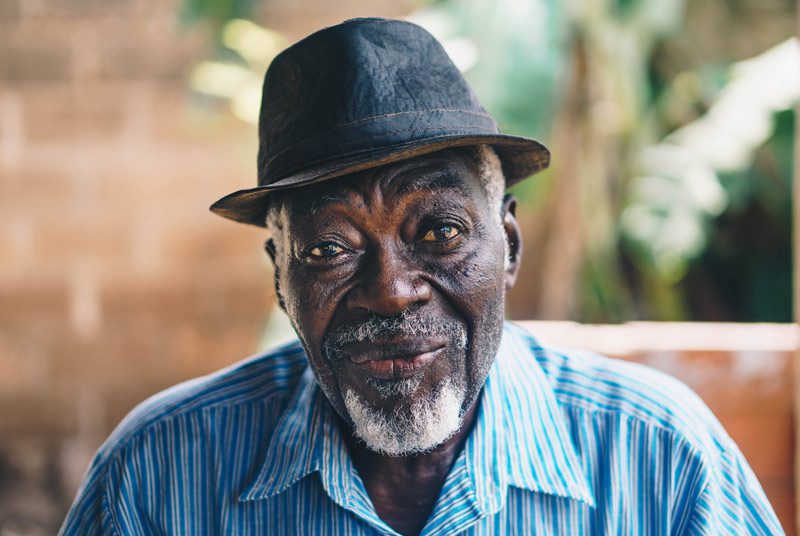So many seniors feel as though their lives will end soon. They have either achieved everything they wanted to or received word that their health is in poor shape. It’s not easy for seniors who have lived long and happy lives to suddenly, out of nowhere, feel trapped in their bodies as they grow older. It can lead them to lose interest in life and isolate themselves from friends, family, and activities they love to do. The life changes seniors experience may cause feelings of uneasiness, stress, and anxiety. If they cannot regain their emotional balance after a period of adjustment, it may cause them to develop depression, which can significantly affect their quality of life.
If you are looking after your senior loved one’s health, it is essential to be aware of the common symptoms of anxiety and depression.
Common Symptoms of Anxiety and Depression in Seniors
Anxiety symptoms may vary widely.
Physical symptoms:
The elderly may experience:
- Fatigue, weakness, loss of appetite, and weight gain.
- Sensitivity to light (photophobia) or noise, tremors, or twitching.
- Heart problems such as palpitations and chest pains.
- Headache.
Mental Changes.
Seniors who suffer from anxiety complain about:
- Difficulty focusing and paying attention to details.
- Feeling as though their memory is failing or that they’re going crazy.
- Being unable to stop worrying and ruminating
- Flashbacks of a traumatic event.
Depression symptoms also may vary widely.
Physical symptoms :
- Severe fatigue and lack of interest in doing things.
- Anxiety, worry, and agitation.
- Social withdrawal (calls and visits may decrease).
- Persistent aches and pains that have no identifiable physical cause.
Mental Changes.
Symptoms of depression in seniors often include:
- Feeling sad, empty mood most of the time; nothing feels good anymore.
- Not wanting anything to do with friends and family.
- Hopelessness and despair about not being able to change the situation.
Anxiety and Depression During Seniors Years
Some seniors are at an increased risk of developing depression and anxiety. It’s easy to understand why. Many seniors face challenges as they age, including:
Loneliness and isolation: Whereas in previous years, the senior had a network of friends and family, that support system begins to diminish as loved ones die or move away. Seniors who live alone report feeling lonely more often than those who live with others or those living in group settings.
Physical ailments: As the body begins to slow with age, it’s not uncommon for seniors to develop one or more chronic illnesses. Seniors who live with pain, limitations in mobility, memory issues, and other physical problems often feel that life is no longer enjoyable.
Financial concerns: While many seniors feel secure in their financial status because of their savings and assets, others may be in an economic situation that leaves them with few resources. Financial worries can lead to feelings of helplessness, depression, and isolation.
Mental issues: Seniors who suffer from chronic pain or physical ailments may also develop depression or anxiety because of the psychological distress of those health issues.
Loss of independence: Another change experienced by seniors is that they are fully aware of their hardships. They realize that it’s impossible to be productive every day and, therefore, no longer feel any sense of urgency or accomplishment.
The first step in helping your senior loved one deal with anxiety and depression is to understand what’s causing the feelings of uneasiness, stress, and anxiety.
Ways to Help Seniors Deal With Anxiety and Depression
Managing anxiety or depression in seniors takes time and patience. However, it is possible to help them regain their emotional balance and lead a productive life again. If you’re caring for your senior loved one, try the following tips:
1. Encourage her to keep up with hobbies she enjoyed in the past.
It’s crucial to find something they love that will allow them to engage in their favorite pastimes regularly. Be sure to ask your senior loved one if there’s anything she wants to do that you can help facilitate. It may be as easy as suggesting she take an online course or going on a trip she always wanted to take. It may also involve making plans for a social gathering with friends.
2. Creating routines is vital for seniors with anxiety and depression.
It includes exercising regularly, eating healthy foods daily, and following a set schedule for meals, going to bed, and waking up.
3. Remind your senior that help is available.
Seniors may think that their emotions are a sign of weakness and feel they cannot talk to anyone about it. If you notice your senior loved one acting differently, be open and understanding and offer to listen if he wants to talk about what’s bothering him. Be sure to tell him you’ll always be there for him if he wants to talk again in the future.
4. Help seniors develop lifelong habits of coping.
It includes discussing the problem with a trusted friend or relative, taking time to do things that make them happy, and finding ways to leave their worries behind and relax.
5. Encourage your senior loved one to seek medical help if needed.
Anxiety and depression are real conditions that need to be treated professionally. Encourage your senior loved one to find a therapist and engage in psychotherapy sessions. It may involve an appointment with a psychiatrist or psychologist, group therapy sessions, and self-help books.
The anxiety and depression that become more common with age do not define senior loved ones. There are various ways to help them cope with their emotions and live happier, healthier lives. Keep in mind that having this condition does not mean there has been a life-altering event; it’s simply the result of living longer. Help senior loved ones by encouraging them to make healthy choices for themselves, showing care for their well-being, and offering the support they need when they need it most.
If you or someone you know experiences mental health issues, it is important to seek help from a qualified professional. Our Resource Specialist can help you find expert mental health resources to recover in your community. Contact us now for more information on this free service to our users.

In 2008 the United States government designated July as Bebe Moore Campbell National Minority Mental Health Awareness Month “to enhance public awareness of mental illness …. among minorities.”
Bebe Moore Campbell was an American author and mental health advocate who wrote works of fiction, nonfiction, and children’s literature about the harmful effects of racism and the mental health impacts on those affected.
Each July, www.rtor.org and its sponsor Laurel House, Inc. honor the legacy of Bebe Moore Campbell. We believe in using language that puts people first and emphasizes their individuality and unique contributions rather than their health or demographic status. Just as we do not refer to people living with schizophrenia as “schizophrenics,” we avoid terms such as “minority” and “marginalized” when referring to BIPOC (Black, Indigenous, and People of Color) and BIPOC Mental Health Month.
Please join us in recognizing the unique struggles BIPOC face and bringing awareness to the need for adequate, accessible, culturally relevant mental health treatment, care, and services.
Our recent blog post, 8 Accessible Mental Health Resources for Black, Indigenous, and People of Color (BIPOC), contains several links to online resources promoting the emotional wellbeing and access to mental health care for these communities.
www.rtor.org and Laurel House are committed to the advancement of racial equity and social justice and to making mental health services available to all.
Photo by Fred Kearney on Unsplash
The opinions and views expressed in any guest blog post do not necessarily reflect those of www.rtor.org or its sponsor, Laurel House, Inc. The author and www.rtor.org have no affiliations with any products or services mentioned in the article or linked to therein. Guest Authors may have affiliations to products mentioned or linked to in their author bios.
Recommended for You
- Why Eating Disorders in Men Are Often Missed - July 3, 2025
- No More Silence: The Opioid Epidemic’s Alarming Impact on Women - June 30, 2025
- The Hidden Impact of Repressed Memories on Mental Health and How to Heal - June 26, 2025






This is so important, especially following the pandemic when depression skyrocketed in seniors. This article shares the warning signs to watch for and some additional helpful information: https://stayhomecare.com/warning-signs-of-senior-depression-and-how-to-help/
Hi Jennifer,
Thank you for sharing.
-Danielle